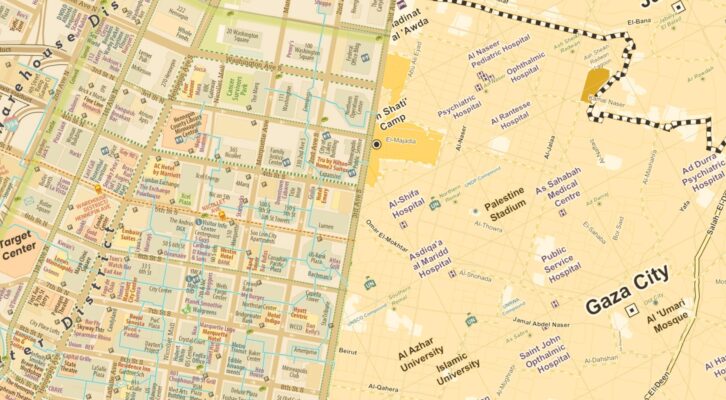For the past ten years I have lived in Oxford, MS, which is most famous for being the hometown of William Faulkner and John Grisham, neither of whom live here anymore. When I moved to Oxford with my husband Chris Offutt, I expected the place would be steeped in their legends, and it is. What surprised me was finding ourselves embraced by a living, vibrant community of writers. All we had to do was wander into City Grocery Bar, two doors down from the beating heart of our town, Square Books, and find all the crime writers there: William Boyle, Tom Franklin, Ace Atkins, the poet Derrick Harriell, whose short story won an Edgar last year, Michael Farris Smith, Matt Bondurant, Lee Durkee (The Last Taxi Driver is one of my favorite books of 2020), and many other poets, writers, booksellers, readers, artists of all kinds.
To be part of a creative community feels like being in a friendship, but bigger. It is a phenomenon of magic or luck. It is a gift. Some of Oxford’s magnetism is simple to explain: there’s Faulkner’s legacy, of course, and the extraordinary Square Books, which has built and sustained a community of writers and readers over the last four decades. The size of the town helps, too—you see somebody you know every time you leave the house, and everybody stops to talk. Running errands in Oxford is social, inefficient.
When we writers get together, we talk about books we love, publishing, agents, and what we’re writing, but mostly we talk about everybody’s kids, our aging parents, and how things are back home (not one of us is from here). We complain about the Kroger and speculate on the genealogy of our mutts (Ace thinks Zimmy has some fox terrier in him). We read each other’s work and celebrate each other’s successes.
When Tommy won the Golden Dagger for the flawless Crooked Letter, Crooked Letter, we threw a big party at our half-renovated barn. I tried to make him a cake in the shape of a Golden Dagger, but the qualities one wants in a dagger (slender elegance, a pointy tip) and the qualities one wants in a party cake (structural integrity, buttercream frosting) are not as compatible as I’d hoped. The children at the party asked me why was the cake a fat yellow cactus, was this some kind of desert theme? I told them yes and they ate it happily. At least it tasted good.
We can’t have parties now, but I’m not worried: this community has survived many iterations, shrinking and growing like a breathing animal as people move in, leave town, or pass away. It can live without any one of us for a length of time, as we bury ourselves in writing projects. It will live through the isolation of covid, and it will welcome newcomers, as it did when I first arrived.
It is a wistful endeavor to write about community in the eleventh month of the pandemic, when all I have done for months is stay home with Chris, and occasionally wander outside to see what my chickens are up to. They are weird little dinosaurs with short attention spans and enormous enthusiasms. Whenever I open the back door they run towards me, on the off chance I’ll throw them some mealworms. Even though I know they just want worms, I’m still flattered by their excitement.
I have chickens because Bill Boyle’s wife Katie talked me into it a couple of years ago. In the first months of the virus I panic-bought ten more hatchlings. I named one of these babies Veronica Mars and another Vera, after DCI Vera Stanhope. (Chris and I watch a lot of British crime shows.) Veronica Mars turned out to be a terrible rooster, and he is, as they say, no longer with us. Vera, on the other hand, has grown up to be a shy plump hen with a sweet singsong voice, a reliable layer. It’s refreshing to hang out with animals these days, because they don’t care about the pandemic. They don’t even know who the president is.
Now that the birds are old enough to lay, we are overwhelmed by eggs. Periodically we gather up our extra dozens and drive around town, dropping them off to our buddies. Sometimes it takes all day, because we stay too long chatting in the driveways of everybody’s houses. We’ve missed each other. We can’t have parties, but we can do this.
We took eggs to Katie and Bill (Katie’s chickens, fancy bantams with fluffy hats and featherpants, don’t really lay). After months of not leaving our respective houses, we studied each other from a distance, trying to assess how destabilized we’d all become. Katie said they were doing okay and I believed her. We’re alright too, I said. You know, not great. But alright. “Yeah,” she said, nodding. “Writers. The writers are fine.”
It’s true that we writers possess a skillset that has turned out unexpectedly valuable: we are used to working from home, and we tend to have a fluency with social isolation, career uncertainty, and negotiating despair. But we also have this Oxford community. We’re there for each other. We’re part of this bigger living thing.
We talked for a while in the Boyles’ front yard, sad when we had to go. We still had eggs to deliver to Lee and Ace and Michael. I wanted to get home before dark and lock the hens up safely for the night.
***


















